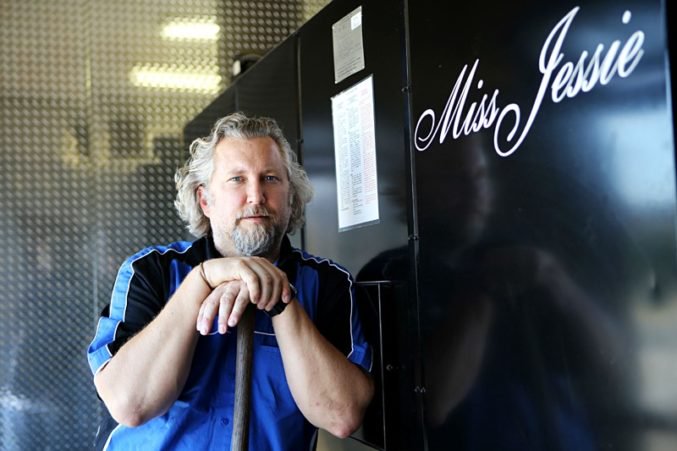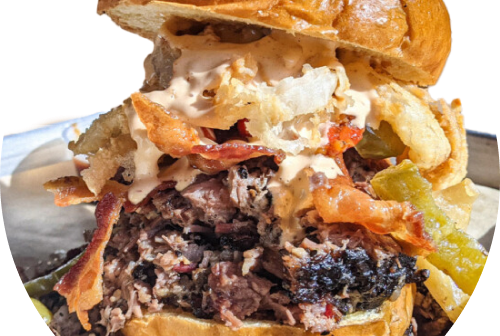Yesterday I posted about Jack Perkins’ The Mockingbird Diner closing after a year-and-a-half at its location near Dallas Love Field Airport. I talked with him later that afternoon (incidentally, as he was driving to make his last bank deposit for the restaurant). The conversation ran from purchasing a hotel to operating drone-delivered pizzas and ended with something quite surprising. (More on that below.)
I wanted to probe the question of staffing challenges. To use the closing as a litmus test and case study, so to speak, for a phenomenon that’s both complicated and widespread, and about which I’ve heard many restaurateurs, on many different levels, comment.
“I think our industry’s at a crossroads,” Perkins says. “At the risk of making people in our business angry, there’s not a [specific] training regimen. If you say you wanna be in the restaurant industry, then be in the restaurant industry. If you wanna be a chef, start as a dishwasher. But you have to want to be a good server. I was a waiter and a bartender [in my life]. It was either a transition job for you or something you had decided might be your career just for now. So people have always kind of jumped around. But not like now.” He points to a reality he sees: there are currently more jobs than people to take them.
When he opened The Mockingbird Diner, Perkins says, he called around to contacts who had worked for him in the past. “No, I’m working construction now” was a common response. One could earn more money in that. He was facing a shifting talent pool, a work force in transition. One of the straws that broke the camel’s back, he says, was one particular week in the recent months at Mockingbird. His best dishwasher, who earned $20 an hour there, as he says all of his dishwashers did, called to tell him that she wouldn’t be able to come in that day or the next day. Her rent was due; her earnings, even at that rate, wouldn’t suffice; she was going to have to drive Lyft those days to make up the difference.
“We’re competing with brand new careers that didn’t exist five years ago,” Perkins says. “If you have a warm body and have a car, you can deliver Amazon packages or drive Lyft or Uber.” These possibilities, as he sees it, have pulled away the pre-skilled labor that was a restaurateur’s bread and butter.
At Mockingbird, Perkins says, he was losing eight to 12 employees a month, in periods of constant flux. “So you can never get anyone trained. You can never get anyone adopting the culture,” he laments. “We’re bathed in culture,” he says of his restaurants, (formerly) The Slow Bone and (still) Maple & Motor. “We sell $100,000 in merchandise every year,” he points out as evidence of a culture bought into not only by staff, but customers. “You can’t even create a culture among your employees if you’re losing two or four a week. So I kinda started separating myself from day-to-day operations,” he continues, explaining an attempt to isolate the causal factors for Mockingbird’s turnover. “Because maybe I’m part of the problem,” he says. “Because I’m demanding.” He took a back seat for a while. “And turnover got worse,” he says. “So it wasn’t me.”
So what was it? Perkins blames a certain lack of cachet inherent in the type of restaurant itself—the humble all-day diner. He cites a server easily making $1,000 in credit card tips alone per week and pulling in $60,000 to $65,000 a year, who jeopardized that by failing to show up to work on time. “And part of it is that there is no panache that comes from waiting at a breakfast and lunch place,” he theorizes. That only begins to answer the question.
It’s also a general cultural shift, something far more difficult to grasp. “They’re patient zero for this epidemic,” he says of the millennial generation that he finds himself struggling to fathom. “But it’s not age-related, it’s not generationally-related. I know that I don’t understand people the way I did anymore.”
In spite of that, he says, “I’m not mad. I’m really not. I’m confused and I’m disappointed. But, you know, people are who they are. I’m not gonna have restaurants like I’ve had in the past.”
And this, of course, is where things got interesting. What exactly will the future hold?
“I love the idea of people being able to wait tables from in front of their computer,” he says. We got into the subjects of drones. And pizza. Drones delivering pizza. It was a bit of a blur. “I think there’s a real future in coming up with the automation,” he says. And so, talk of the robot at UT Southwestern’s cafeteria that resembles a soda dispenser and will assemble a salad for you. And also hotels without staff, just housekeeping.
“Part of the problem is the city,” he says. But the upshot is that Perkins is in the final stages of purchasing a modest, historic hotel in an area that’s not too far from the wealthier suburbs of Dallas—a “manageable drive,” he says. He envisions transforming the hotel’s ornate dining room into a setting for coursed tasting menus. No taking of orders. He imagines the hotel being staffed by people from the small town. A solution on numerous levels to the flight into the city. The constant churn.
“I’m gonna buy this place,” he says. “Because it’s in a great little area.” And if it doesn’t work out, he’ll live in it himself. But for now, nothing is changing at Maple & Motor—which may, as it turns out, be the last and only Perkins restaurant in Dallas for the foreseeable future. Until we work out the drones. Start taking bets on the identity of the small town.






